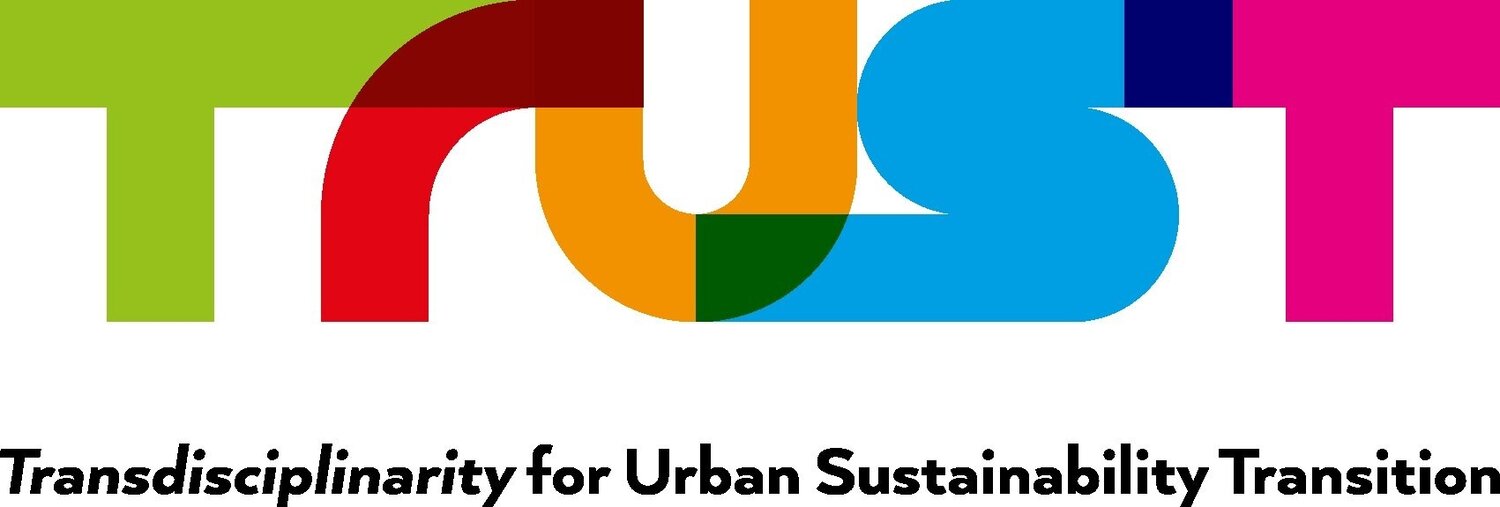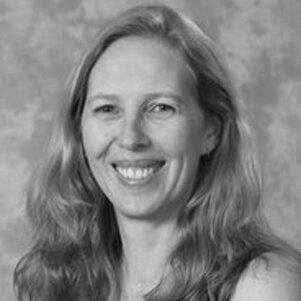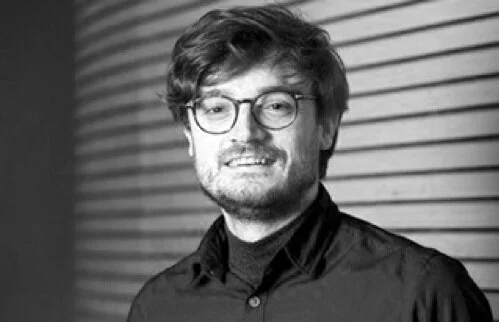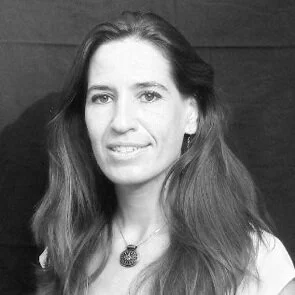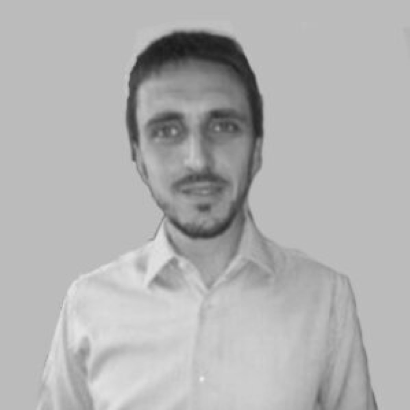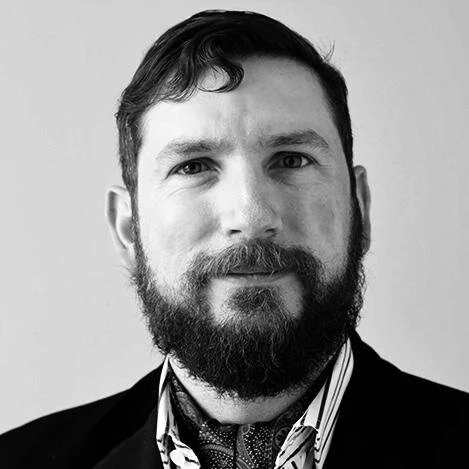SHAPE-ID & TrUST writing workshop
| LIST OF INVITED EXPERTS |
JULIE DAVIS
Julie’s teaching and research interests lie at the intersection of science, health, society and environment, with a special interest in early childhood education for sustainability (ECEfS). Helping educators understand and grapple with issues of sustainability lies at the core of her pedagogical approaches. Acting on this interest, Julie co-founded the Queensland Early Childhood Environmental Education Network (now the Queensland Early Childhood Sustainability Network), to bring together educators, directors, parents and others keen to share resources, ideas and perspectives for embedding education for sustainability principles and practices into early childhood education. In 2011, Julie received recognition for her teaching leadership by being awarded a National Teaching Citation from the then Australian Learning and Teaching Council. In research, Julie specializes in action research as a means for developing understandings of a situation and for creating change. Julie used action research in both her Masters and doctoral studies. Her keynote speech will be on “Interdisciplinary Early Childhood Education for Sustainability: Examples and processes for scaling up change”.
JO-ANNE FERREIRA
She is Professor of Sustainability and Teacher Education in the School of Education at La Trobe University, Bendigo, Australia. She is Director of Graduate Research and leads the Innovative Pedagogies Education Discipline Area. Prior to this she was Director, Centre for Teaching and Learning, Academic Director SCU Online, Acting Head of School, Education and Deputy Head of School, Education (Teaching and Learning) at Southern Cross University. She was also Program Coordinator for the interdisciplinary Master of Environment (Education for Sustainability) Program, and Director of the EcoCentre at Griffith University. Her research interests are in the sociology of education, in particular how environmental and sustainability education fashions environmental citizenship skills and identities; in teacher education systems and social change; and in online learning and teaching design and pedagogies.
OLIVIA BINA
She has PhD in geography from the University of Cambridge (UK). She is a principal investigator at the Institute of Social Sciences at the University of Lisbon and Assistant Professor in Geography and Resources Management at the Chinese University of Hong Kong. She is currently working on the concepts of growth, progress and sustainability, and alternative interpretations of well-being. She has developed research in the areas of theories and mechanisms of environmental governance, namely in relation to sustainable urbanization in China. With extensive experience in the area of policy analysis and governance mechanisms (focus on environmental assessment) applied to a variety of development sectors, as well as institutional capacity building, she has developed an advisory activity to governments and international agencies in these areas.
MARIANNE RYGHAUG
She holds a Ph.D. in Political Science and is a Full Professor of Science and Technology Studies at the Norwegian University of Science and Technology and leads the Center for Energy, Climate and Environment at the Department of Interdisciplinary Studies of Culture, NTNU. She was Co-Director of Centre for Studies of Sustainable Energy (CenSES), a national center for environment-friendly energy research from 2009-2019. She has been engaged in energy and climate-related research since 1999 and has published widely on these topics in top international journals. Her areas of expertise include energy and climate policy, sustainability transitions and innovation policy, and studies of users, practices and public engagement. She has a long track record for scholarly as well as practical experience with interdisciplinary research and research collaboration with industry and public authorities, both nationally and internationally. The last years her research has particularly been focused on research related to sociotechnical transitions in the areas of smart grids, smart homes and cities, electric vehicles, transportation, and sustainable mobility. Her research interest is in the interface between public participation and engagement, innovation and technology development and energy and climate policy.
MARIA GARCIA ALVAREZ
She is from the north of Spain and she is a lecturer in Geopolitics & Globalization, Rhetoric, Global Challenges, and Emergent Futures. She is also the coordinator of the Value Creators program for year 3 and 4. She holds a Master's degree in Communication Sciences from the Universidad Complutense of Madrid (Spain) and specialization courses on Globalisation and Sustainability. She is a certified educator for sustainability by the UN Peace- Earth Charter. Maria is the contact person of UN-Habitat for Windesheim University. She is in the Advisory Board of the EU research project TrUST (Transdisciplinary Research for Urban Sustainable Transition); member of the SDSN (UN Sustainable Development Solutions Network); and member of the Experts Committee of the Ocean i3 project (SDG 14 transdisciplinary project from the Basque Country University and the Bordeaux University).
EDDI OMRCEN
He currently works at the Gothenburg Centre for Sustainable Development as durability specialist. He does research in Organizational change for Sustainable development, Leadership and Business Administration. His most recent publication is 'Universities as role models for sustainability: a case study on implementation of University of Gothenburg climate strategy, results and experiences from 2011 to 2015.
SANDRA CAERIO
She holds an undergraduate degree in Environmental Engineering from New University of Lisbon, a Masters in Science of Coastal Zones from University of Aveiro and a Doctorate on Environmental Engineering from the New University of Lisbon, Portugal. She is currently Associate Professor in the Department of Science and Technology at Universidade Aberta (UAb) and a senior researcher at CENSE - Center for Sustainability and Environmental Research from New University of Lisbon, Portugal. Also, she collaborates with the e-learning Laboratory of UAb. Her main research and teaching areas include environmental management and assessment, education for sustainable development and sustainable consumption and e-learning and environmental sciences. She was the former coordinator of the Section of Applied Sciences, Environment and Society of DCeT and of the B.Sc. programme on Environmental Sciences. She is the institutional coordinator of the European Virtual Seminar in Sustainable Development and vice-coordinator of the PhD in Social Sustainability and Development at UAb, Associate editor at Journal of Cleaner Production, Elsevier and on the editorial board of the international journals of Ocean and Coastal Management, Elsevier, Latin American Journal of Management for Sustainable Development, Inderscience, and BioMed Research International, Hindawi Publishing Corporation and reviewer of several international scientific journals and books.
Teresa Guraya
She received her Bachelor of Chemistry from the University of the Basque Country (UPV/EHU) in 1984, before completing her Master of Metallurgy in 1989 and PhD of Physics in 1995, at the University of Navarra. She then spent two years in CAF S.A., a railway stock company; during that period, she worked on structural materials for a new tram design and spent two stays at Drexel University in Philadelphia and Stanford University in Palo Alto, California. On her return to academia in 1998, she joined the Department of Mining and Metallurgical Engineering and Materials Science at UPV/EHU. Since then she spent several stays at Queen Mary University of London in London, Malta University in Msida and Auckalnd University of Technology Auckland-New Zealand. Throughout her time at UPV/EHU she has conducted research with his students on materials science and processes, particularly physical metallurgy of various alloys. More recently, she has been working on metal additive manufacturing (AM), particularly laser powder bed fusion technology. In this work, she examines how the complex thermal conditions and melting dynamics affect the tracks, microdefects and microstructures formed during AM and the subsequent mechanical properties of the AM alloy products. She is the author and co-author of more than 60 scientific and technical publications in scholarly journals and conference proceedings. Today, she teaches topics on engineering materials and manufacturing technologies/processes at degree level. She applies Project Based Learning (PBL) and Service Learning (SL) pedagogies and is deeply committed to work professional and sustainability competencies through all the courses. She was the chair in the First International Conference in Engineering Education for the XXI Century, held in Castelló de la Plana (Spain) in 2017 and in the Second International Conference in Engineering Education for the XXI Century, held in Bilbao (Spain) in 2019. She is the author and co-author of more than 20 publications in journals and conference proceedings related to teaching innovation.
NIKKI BRAND
Spatial planning and territorial governance are key to her research portfolio, with urbanization patterns and flood risk reduction as main themes of study. She thrives in transnational and interdisciplinary working environments, both in science and practice. As an independent research associate at Urban Integrity, she studies the contribution of networks of plans to vulnerability for flooding in the US and the Netherlands, within the Texas A&M-based resilience scorecard-project. Additionally, Urban Integrity writes and edits academic contributions on long-term urban phenomena, flood risk reduction strategies and multifunctional flood defenses for several national and international commissioners. Based at TU Delft's Integrated Design of Infrastructures-Chair she assesses the findings multidisciplinary research and integrated design-projects that were funded by the Delft Deltas, Infrastructures and Mobility Initiative (DIMI), and to translate these into practical guidelines for new projects. All projects involve researchers from the fields of technology, public administration, and design, and are studied from an international comparative perspective.
RUTH FORSTER
She is an advocate for social and individual change towards more sustainable and meaningful lives for everybody. Her experience is challenging transitions can offer great opportunities for growth. Her focus is on enabling them to connect deeply with their calling, values and creative resources in order to find guidance and to build up competencies for navigating more skillfully through uncertain and complex times. She is highly skilled and dedicated to creating safe, custom-tailored transformative learning environments indoors or outdoors. In her practice, she combines in innovative ways methods and procedures from complementing worlds: the scientific-analytical (e.g. system-science, learning-science, neuroscience), the expressive-artistic intuitive (moving, drawing, poetry), the somatic (embodied presence) and the natural. Her way is respectful, resource-centered, hands-on and unconventional, combining a sharp mind with listening deeply from the heart, meeting the clients where they are and challenging them just in the right way to allow progress.
CRISTINA VASILESCU
She holds a Master degree in “Commercial and Institutional Relationships with East European Countries” (University of Macerata) and a bachelor degree in Political Sciences (University of Bucharest).
She is a senior researcher within the Administrative and Institutional Policies Unit of IRS. Her main areas of research are public policy analysis and evaluation of public policies/projects/programmes, with a particular focus on EU policies and European structural and investment funds; sustainable territorial development; participatory processes, social accountability and transparency in public administrations; performance management and performance evaluation in public institutions; institutional capacity and capacity building; gender equality and social inclusion. On these issues, she has participated in numerous researches and evaluations at national and EU level. Some of her most recent projects on the conference issues are the H2020 project “Energies for Local Administrations to Renovate Governance in Europe – collaborative processes in sustainable energy - (ENLARGE)”, the Climate-KIC project “Market research analysis on education in climate change in Italy” and the EU Civil protection mechanism project “Local resilience capacity building for flood mitigation (CAPFLO)”.
LORENZO CHELLERI
He is Director of the International Master Degree in City Resilience Design and Management, and Senior Researcher at the Barcelona Universitat Internatiocional de Catalunya (UIC). He is also the Chair of the Urban Resilience Research Network (URNet) and part of the UN group for launching the International Urban Resilience Institute (UN URI).
Lorenzo holds a European Ph.D. in Urban Geography (with a thesis on Urban Resilience Governance) from the Autonomous University of Barcelona (UAB), and two MSc degrees in regional planning (UAB) and environmental governance (Venice IUAV). He has been Visiting Fellow at the Brown International Advanced Research Institute (US), TU Delft University of Technology (The Netherlands), the Basque Center for Climate Change BC3 (ES) and involved as Principal Investigator or researcher in more than 10 International research projects. He has been working for the European Environment Agency (EEA) and conducting research in Mexico, Bolivia, Morocco, Europe, Singapore, Seoul and Taiwan. Authoring 25 peer reviewed papers in the last 5 years, Editor and regular contributors for different prestigious international blogs (URNet, AESOP YA, TNOC, UGEC) his works on urban resilience have been cited from the Rockefeller’s 100 Resilient cities initiative, awarded from the International Institute for Environmental Development (IIED) and thus contributing (and providing a critical perspective) to urban resilience theory advances.
K.F. (KAREL) MULDER
Innovation for Sustainable Development is his main research focus. A major part of his work has been dedicated to explaining engineers that engineering for sustainable development involves strategy. More recently, He started focusing on innovation strategies for urban systems, creating urban symbiosis and a more efficient urban metabolism.
MARITE GUEVARA
She is Ersilia Foundation Director since 2004. She is an advocate of active learning techniques as PBL, DBL and Interdisciplinary based learning. She has both worked for private and public institutions designing learning programs, addressing all levels of the educational system, informal and non-formal educational contexts.
Paolo Gervasi
He is Marie Sklodowska-Curie Research Fellow at Queen Mary University in London, where he works on a research project on the history of caricature between literature and visual arts. He has published two monographs: the recent Vita counter literature. Cesare Garboli: an idea of criticism (luca sossella editore, 2018) and La forma dell'eresia. Giacomo Debenedetti 1922-1934: a story of a beginning (Ets, 2012). He deals with history and theory of criticism and has written essays on contemporary Italian literature and Renaissance culture, on the relationships between literature and neurocognitive sciences, on digital humanities projects to which he collaborated during the three years as a researcher at the CTL laboratory of the Scuola Normale Superiore of Pisa. Collaborate with online blogs and magazines, writing above all about the relationships between science and literature. He maintains a personal blog linked to his research, which is called Misshaping by Words.
MARTA VARANDA
She is Doctor in Sociology – University of Lille I (Université des Sciences et Technologies de Lille – Faculté des Sciences Économiques et Sociales). Master of Arts in sociology of Organizations – University of South Carolina. Bachelor of Science – Eastern Michigan University. Major: Sociology; Minor; Economics. Her recent/ongoing research projects are TDP COST ACTION (TD1408) interdisciplinary in research programming and funding cycles (INTREPID0 Co-proponent, member of Management Committee and core team; coordinator of the STSM’s team, coordinator of the synthesis and dissemination team. Also, the experience of regional hydrographic committees: which impact for the knowledge and water management in Portugal, Conflicts and public participation in water management in Brasil and Portugal. Interest and/or practice of interdisciplinarity.
ANTJE DISTERHEFT
Antje is enthusiastic about exploring transformative processes that can support keeping human-nature systems in balance. She completed her PhD in the field of (social) sustainability, at Universidade Aberta, Portugal. Her doctoral research focused on sustainability in higher education and how to assess participatory processes when universities start engaging with all forms of change that can reduce the ecological footprint, increase justice and promote well-being for all. Using a mix-methods approach, she connected with sustainability experts (students, teachers and administrative staff, n=149) in interviews, focus groups and workshops and has gained experience with qualitative data analysis. As a complementation to her academic work, she got trained in diverse methods for participatory leadership and project management design, applying now her facilitation skills in diverse group settings. For her postdoctoral research she is interested in capacity building, citizen science and narratives of transformation on local levels, aiming to investigate in particular new approaches to collaboration and co-creation.
Mauro SarrIca
He is Associate Professor – Communication and Social Research. He works in the Faculty of Communications Science, Sapienza University of Rome. His main research interests are the social construction of knowledge, stability and change of social beliefs, and peace psychology, with a focus on how people interpret and co-construct social reality in order to face changes and innovation. He is member of EAESP, ISPP and AIP scientific associations.
SEBASTiaNO FOTI
He is vice rector for education and teaching activities, Politecnico di Torino. His research in civil engineering in the field of geotechnical site characterization using seismic methods, structural behavior of existing bridges, environment protection. Teaching of university classes and continuing education courses for civil engineers. Design of foundations and geotechnical systems for bridges and transportation infrastructures.
EMILIO PAOLUCCI
He is ASP, Politecnico di Torino / Clab coordinator CLab Chief / Contamination Lab. His teaching and research activities in the fields of entrepreneurship and startup creation, Technology Transfer for universities, information systems and organizational theory at undergraduate, postgraduate and PhD levels. He is Board Member Collegio Carlo Alberto and Alta Scuola Politecnica. He is authors of several papers published in international journals and conferences. Fellow of the "Alta Scuola Politecnica". He is also member of the "Committee for Evaluation of Research Programs", Regione Piemonte (2010-2015). His research activities in the field of ICT management, dealing with organizational studies and management of innovation at national and European level. He is chairman of the “Spin-off Committee” and of the "Patent Committee) at Politecnico di Torino. He is member of the Board of Examiners of the “Innovative Enterprises Incubator” of the Politecnico di Torino. Also, Italian co-responsible of the BIT international project leaded by UCLA and of GAP program. Reviewer for International Journal of Production and Operation Management, International Journal of Information Management, International Journal of Information Technology and Management, International Journal of Technology Management. In 2005 founded Electro Power Systems with co-founder Adriano Marconetto. The company has been awarded with the "National Innovation Prize", in 2011 selected as "Technology Pioneer" by the World Economic Forum, and in 2012 included in the "Global Cleantech 100" list. Electro Power Systems is a global technological leader in fuel cell power systems for stationary applications. EPS is now listed on Euronext.
LAURA ORESTANO
She has focused her attention and studies on cultural insights and management, that means not only languages and habits but in-depth understanding of consumers' needs within a nowadays context of cultural diversity and technological innovation. In that respect, in all her works experiences, she has tried to develop new ideas for consumers in terms of products and services based on the cultural, experiential and emotional insight of the potential user/consumer, always keeping a strong commitment to make things happen and to develop a collaborative pattern of interaction and growth. Analogue-to-Digital interaction for path-finding and anti-segregation design to support social needs and social entrepreneurship by developing and testing new business models. In that respect, she has been involved as key player in many strategic projects: from automotive to sports, from tourism and entertainment to FMCG, in large companies as well as in start-ups. To-date she has founded or helped to found 8 different start-ups in different sectors and countries. Specialties: Strategy and Innovation, Social Innovation and Entrepreneurship, Start-Ups, Consumer Insight and Product Development, Strategic Planning and Marketing, Branding & Licensing, Content Creation, Open Data.
RODRIGO LOZANO
He currently works as Professor (full) of Organizational Sustainability at the Faculty of Engineering and Sustainable Development. University of Gävle. Rodrigo does research in Corporate Sustainability, Education for Sustainable Development, Assessment and Reporting, Collaboration, and Organizational Change Management (among others).
DIDAC FERRER
He graduated as an industrial & materials engineer since 1997. He obtained a doctorate in materials science in 2001 from the Technical University of Catalonia (UPC-Barcelona Tech). In year 2000, he was appointed as the Coordinator of the Environment Plan of UPC. From 2005 to 2009, he was the director of CITIES (Interdisciplinary Center of Technology, Innovation and Education for Sustainability), and from 2009-2010 the technical director of the Institute of Sustainability (IS.UPC), with a wide number of projects in curriculum development, sustainable education, sustainable management, interdisciplinary research and communication. He is currently the head of the Innovation and Community Office at UPC. He has been member of the editorial boards of Jounal of Cleaner Production and of the journal Sustainability Science, with a particular focus in the field of Sustainability in Higher Education. He has been in the scientific committees and chairs of various international conferences (EESD, AGS, EMSU). He has taught in the Masters of Sustainability at UPC, in the fields of sustainable organizations, industrial ecology and sustainable technology. He is also co-founder (and innovation director) of Tarpuna, a non-profit cooperative that creates social inclusion through sustainability projects. He develops projects in social fabrication, social farming, energy poverty, collaborative consumption, among other emerging fields. He's been advising the Ajuntament de Barcelona for the Ateneus de fabricació network, among other collaborations. Specialties & interests: Sustainability in higher Education Social Innovation and entrepreneurship Collaborative organisations Public innovation Creative and resilient communities.
ALESSANDRA BONOLI
She is associate professor at the University of Bologna, her main research topics are in Environmental Engineering with particular regard to treatment, recovery and recycling of raw materials and solid waste, to the life cycle assessment and Circular Economy, to dissemination of urban Green Technologies and unconventional building materials for climate change resilience in urban areas. She founded and coordinates the research group of Transition Engineering whose activities are aimed at building a sustainable future by environmentally, socially and economically point of view, through conservation and valorization of natural resources, raw materials, water and energy. A precise research concerns the application of the above topics in cooperation activity for developing and emerging countries. Numerous publications and collaborations with national and international universities.
Patrizia Lombardi
She is Vice-Rector of the Polytechnic of Turin and President of the Italian Network of Universities for Sustainable Development (RUS) promoted by CRUI. Since 2010 she has been Professor of Estimation and Project Evaluation at the Polytechnic of Turin and scientific coordinator of the master "Management of Cultural Projects and World Heritage" at ITC-ILO (International Labor Organization). From 2012 to 2018 she was director of the Inter-University Department of Science, Project, and Politics of the Territory of the Polytechnic and University of Turin, for two consecutive terms, leading the department to achieve objectives of excellence. Since 2015, she has led the Green Team of the Polytechnic of Turin on the path towards sustainability goals. She is an internationally recognized figure for his research in the field of sustainable urban development, as evidenced by the constant participation, as scientific manager or coordinator, starting from the IV Framework Program, in the context of research projects funded by the Community European, on the issues of sustainable development, smart cities, energy transition, circular economy and cultural heritage. On these issues, scientific production is very rich and has over 220 articles in national and international scientific journals. For scientific achievements, she has received several awards and prizes from national and international bodies. as a scientific manager or coordinator, starting from the 4th Framework Program, within the framework of research projects financed by the European Community, on the issues of sustainable development, smart cities, energy transition, circular economy and cultural heritage.
ANITA MARIA TABACCO
She is graduated in Laurea in Matematica, Università degli Studi di Torino, 1982, Master in Mathematics, Washington University in St. Louis (MO) USA, 1984 and Ph.D. in Mathematics, Washington University in St. Louis (MO) USA, 1986. Her current position is Full professor of Mathematical Analysis at the Politecnico di Torino, Dept. of Mathematical Sciences (since October 2002). Her previous academic posts: Teaching Assistantship in Washington University 1982/83 and 1985/86, Assistant Professor of Mathematical Analysis in Politecnico di Torino 1990/92 and Associate Professor of Mathematical Analysis in Politecnico di Torino 1992/2002. Her research fields are in Real and complex analysis, functional analysis, harmonic analysis with particular interest in interpolation theory, theory of wavelets and applications to PDE’s and integral equations, time frequency analysis. Her current administrative duties are: Head of the Department of Mathematical Sciences, Academic Head of the Language Center, Rector’s Delegate for recruitment, Active member of the Faculty Organizational Panel, Head of the local unit of INDAM (Istituto Nazionale di Alta Matematica), Member of the Governing Council of the “Fondazione per la Scuola” of the “Compagnia di San Paolo” (private foundation). Her research activities are: Organizer of various conferences, workshops and graduate schools, has actively participated in numerous prestigious research projects both national (Murst, C.N.R.) and international (Vigoni Project, HCM, TMR and IHP of the European Community), has given numerous invited seminars and lectures both in Italy and abroad (at international conferences and workshops such as Oberwolfach), frequent referee for many Italian and international journals (including Boll. Un. Mat. It., Rend. Univ. Pol. Torino, Forum, Appl. Comp. Harm. Anal., SIAM J. Math. Anal.)
